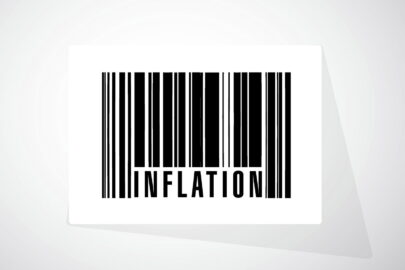65% of people say the cost of living has risen in the past month, according to latest statistics from the Office for National Statistics (ONS).
87% say the price of food has risen, 77% that the cost of energy bills is up, and 76% that fuel prices are higher.
The older people are, the more likely they are to say the cost of food has risen. It affects 91% of those aged 50-69 and 93% of those aged 70 and over.
A rise in energy bills has hit the so-called “squeezed middle” (81% of those aged 30-49) and older people (78% of those aged 70 plus) hardest.
Electricity and gas prices increased by 8.7% and 17.1% during the month, and were up 18.8% and 28.1% in a year.
Sarah Coles, senior personal finance analyst at Hargreaves Lansdown, said: “The spending squeeze is crushing two in three people – and older people feel the pinch particularly keenly. People aged 70 and over are most likely to say their cost of living has risen because the price of food and energy is soaring. The squeezed middle is also struggling with higher bills, with more people in their home burning through more energy every day.
The rises in energy prices in particular are eye-watering for us all. But often older people feel higher bills and food prices more keenly because they tend to make up a larger percentage of their spending. The fact they are often on a fixed income can also mean they’re less financially resilient, because they have less wiggle room in their budgets. It means that once they have cut costs to the bone, they’re forced to eat into savings or borrow more.
The squeezed middle is under pressure too, with more mouths to feed and more people living in their home at this stage. It’s also far harder to keep costs under control when there are more people making more decisions that affect their energy use. If you have children at home who take ages in the shower, leave doors open, and insist on higher temperatures, the costs quickly mount.
At the moment, people are doing an impressive job of managing these higher costs. Only 16% said they have had to borrow more money or use more credit than usual in the last month compared with a year ago – which is actually down from 18% a month earlier. Older people were even less likely to have fallen back on borrowing, just 5% said they had borrowed more. This may be because older people have savings to support them, or because they have simply been forced to make much more difficult sacrifices in order to stay within their budget. Bit while we’re keeping our heads above water, there’s every chance this is taking a toll on our resilience.
In many cases, the full impact hasn’t hit yet. Those who are on fixed rate energy deals have been protected from the rises so far, and those on variable deals have protection from the energy price cap. The full impact of the price rises will only really be felt in April when the energy price cap rises. At that stage, the spending squeeze is going to be even more painful for millions of us.”
